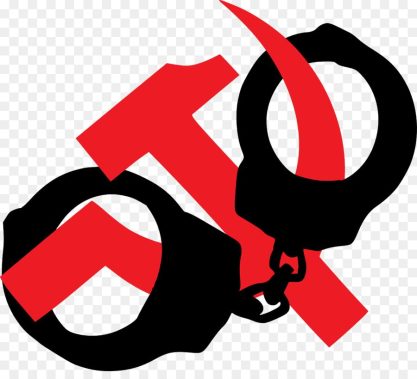Moscow Party Committee to CPSU Central Committee. Report on a vast anti-Gorbachev demonstration in the centre of the Soviet capital following the January events in Lithuania. [R: 20 January 1991, Pb 223], 2 pp.
============================

[page one of two]
Return to the Protocol sector of the CPSU Central Committee General Department
[vertical text on left margin – “Return within 15 days”]
Pb-223, 23 January 1991
Sent to Politburo members and Secretaries of the CPSU Central Committee
To Comrades V.S. Pavlov, V.A. Kryuchkov, B.K. Pugo, D.T. Yazov,
A.A. Bessmertnykh, A.N. Ilyn
To the CPSU Central Committee
MEMORANDUM
About the 20 January 1991 demonstration
On 20 January a demonstration with permission from Mossoviet was held from 11 am to 2.30 pm. It was organised on the initiative of a number of USSR People’s Deputies and the coordinating council of the Democratic Russia movement. The column of demonstrators marched from Mayakovsky Square along the Garden Ring and Kalinin Avenue to the 50th Anniversary of October Square [Manege Square], where a 90-minute rally was held.
Up to 150,000 people took part in the demonstration. The composition of the organisations and politicised movements involved was traditional. Expert evaluation indicates that representatives of the scientific and creative intelligentsia were predominant among those taking part, as were persons from ethnic groups not to be found in Moscow, and also people from outside the capital.
Twenty six people spoke at the rally, over which USSR People’s Deputy Yu. Afanasyev presided: 11 USSR People’s Deputies, 9 RSFSR People’s Deputies, and also representatives and deputies of the Supreme Soviets of Lithuania, Estonia, Azerbaijan, Georgia and Armenia. G. Burbulis read an appeal by B.N. Yeltsin to the nations of Russia.
The rally was clearly anti-presidential and anti-communist in tendency. Among the characteristic slogans were “Mikhail Bloody-hand, Nobel laureate”, “Put Gorbachev and his gang on trial”, “Put the Soviet President in the dock”, “The bloodshed in Lithuania is the latest crime of the CPSU”, “Red Fascists of the CPSU – hands off Russia and the Baltic”.
Of the 33 main themes raised in the slogans and speeches, the anti-presidential theme came first, the anti-communist theme, second; support for the present leadership in Lithuania, third; support for Yeltsin, fourth.
———————————————————
[page two]
The great attention paid to “restrictions” on glasnost, calls for the sacking of Kravchenko and sharp condemnation of Nevzorov was notable.[1]
There were a great many demands to put the Committees for National Salvation on trial and to reject “the reactionary course of Gorbachev and the CPSU”, even to the point of a political strike throughout Russia (from the resolution adopted at the rally) and armed resistance “if force was used” (T. Gdlyan).
During the rally the names of Yakovlev, Sheverdnadze and Bakatin were repeatedly mentioned as victims of the change in the USSR President’s political course. Appeals were made to “honest communists” to leave the Party.
The resolution adopted contained a demand for “the withdrawal of punitive forces from the Baltic republics ”, the dismissal of Gorbachev M.S. and Yanaev, G.I., the dissolution of the USSR Congress of People’s Deputies and USSR Supreme Soviet, the creation of a Russian army, and calls for the formation of a political organisation based on the Democratic Russia movement with party cells in the workplace and at home.
In our opinion, this demonstration should be seen as a confirmation of the course taken by opposition forces to change the State and social system and to remove the present leadership of the country from the political arena.
The tactics of the forces opposing the centre and the CPSU have changed qualitatively. The RSFSR Supreme Soviet under the leadership of B.N. Yeltsin has become the core for the consolidation of democratic and national-democratic movement s in the republics.
For your information
Secretary of the Moscow City Committee of the CPSU, Yu. Prokovyev
No 8
22 January 1991
======================================
NOTES
[1] Leonid Kravchenko was head of the USSR State Committee for Radio and Television (Gosteleradio). Appointed by Gorbachev in November 1990, he was removed by Boris Yeltsin in August 1991 after the failed putsch in Moscow.
In January 1991 TV journalist Alexander Nevzorov made a film (“Nashi”), praising the role of the Vilnius riot police during the events in Lithuania.
General
1. Notes by translator and editor are bracketed, thus [ ];
2. text written by hand is indicated in italic script;
3. when a handwritten phrase, figure or word has been added
to a previously typed document this is indicated by underlined italic script.
Translation, John Crowfoot
